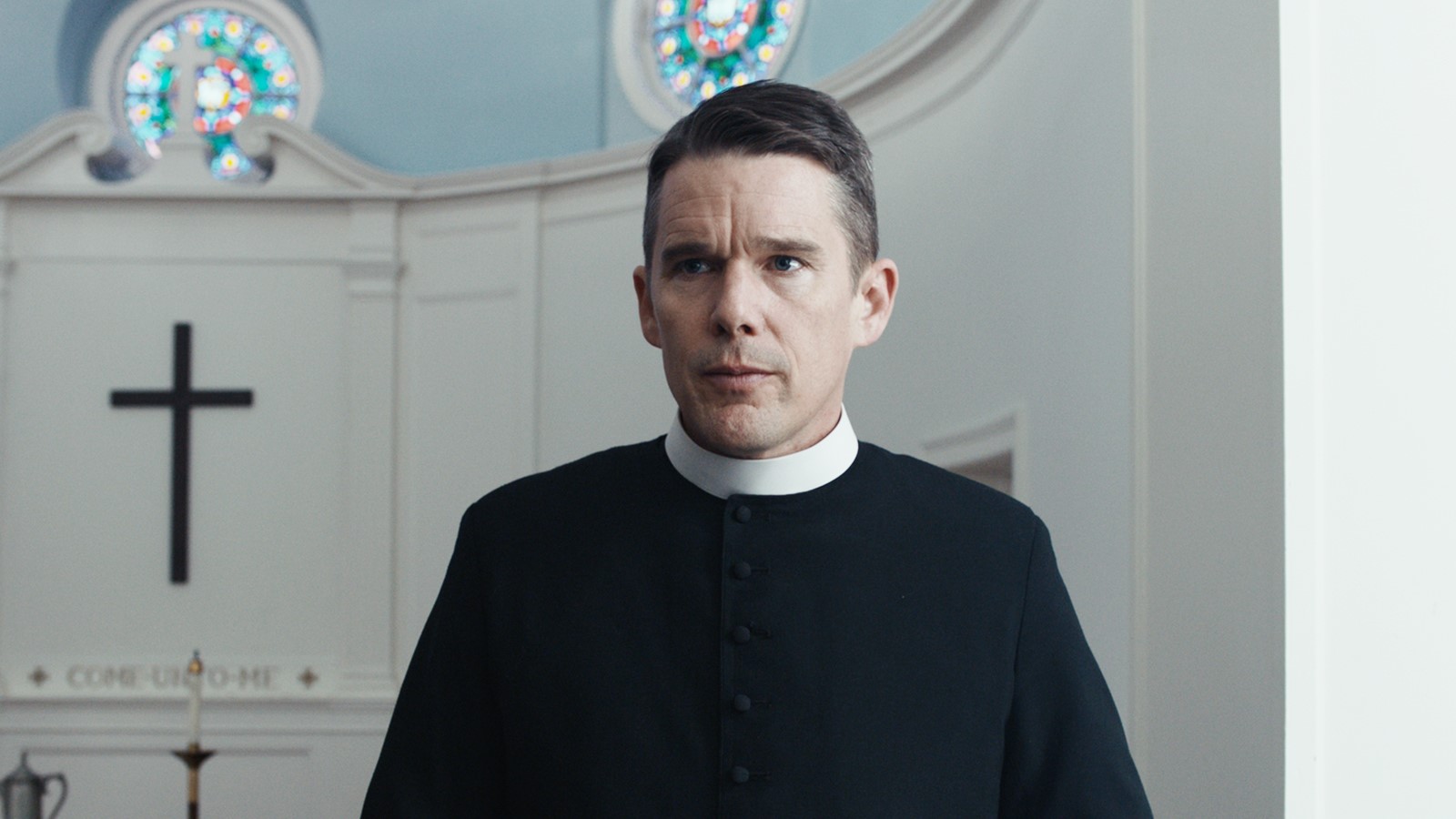
Every hero is challenged by some villain, just as every villain inspires a hero. Whether one views religion as the crown or as the crutch of humanity, it is an institution which has faced plenty of opposition throughout history. For true believers, contrary points of view are to be shunned at best, and stamped out at worst. For the faithless, the existence of an established creed provides the substance against which to rebel.
Subversive elements arise in many forms, and not all are purely anarchistic in nature. While some violent revolutions have overthrown clerical corruption, calmer subversion has also been used to spark reform when a beloved religious movement has grown stale and forsaken its original purpose. When viewed through the long lens of history, such peaceful efforts are usually seen favorably, no matter how harshly they may have been attacked by contemporaries whose personal power was threatened.
But often, subversion cloaks itself in a mere difference of opinion which does not fall in line with prevailing dogma. Through satire, humor, or diverging doctrine, those in disagreement with religious norms have sought to expose error or inconsistency even at the risk of personal heresy. One might confidently assert that these subtler forms of subversion have been more lastingly effective than outright antagonism. Many of the selections in this list are of this gentler subversive nature.
Perhaps it’s predictable, for a number of reasons, that most of these films relate in some way to Christianity. Some retain a spirit of devotion, while others flaunt their doubt and disbelief; but all of them have something to say which is disruptive to some prevailing view of established religion.
1. The Devils (1971) – Ken Russell
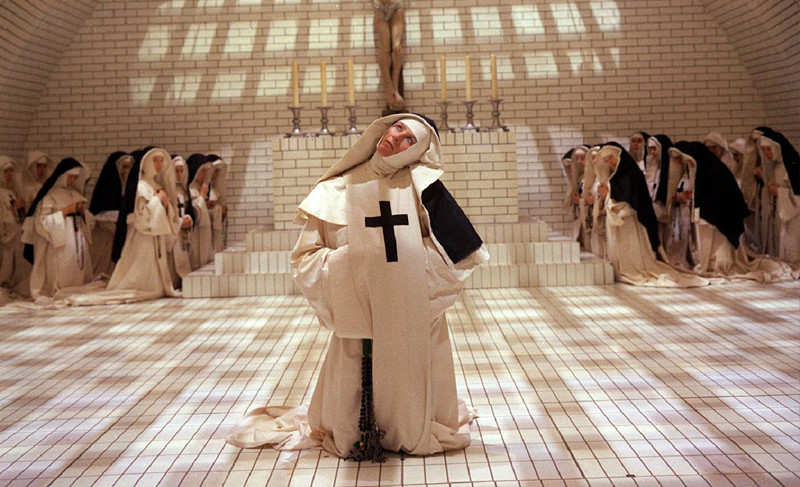
Ken Russell’s The Devils is perhaps the most controversial and reviled mainstream film on the subject of religion. Its very name is synonymous with blasphemy among those who perceive it as an affront to their faith. This perception isn’t altogether incorrect, though it should be pointed out that the main source of the trouble is the director’s extreme style rather than the story itself.
The narrative is based partly on Aldous Huxley’s book The Devils of Loudun, which was an account of real events which took place in 17th-century France. In the small town of Loudun, frenzied fanaticism set in when accusations of demonic possession began to fly; public exorcisms and executions were not far behind.
It seems obvious that horrific historical facts such as these would be difficult to portray on screen with any degree of delicacy. But if anyone could have provoked more outrage over the film than over the actual events which inspired it, Ken Russell was the one for the job.
The reckless abandon with which he told the story added stylistic excess to factual excess, and he soon found himself playing the role of a devil to those whose faith felt attacked by the film. There is an important historical account dwelling beneath the controversial layers of The Devils, but few have been exposed to it due to the film’s reputation for blasphemous content.
2. The Wicker Man (1973) – Robin Hardy
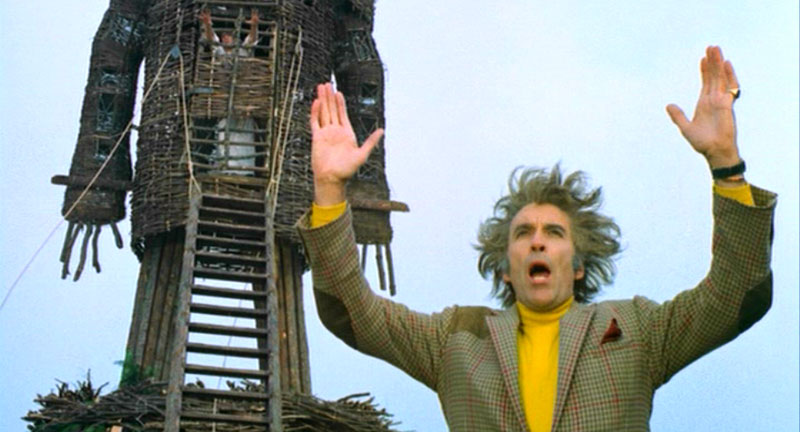
The cult classic The Wicker Man positions itself ambiguously in its approach to religion. Its protagonist is an upright and devout Christian, and though his customs seem a bit old fashioned we’re never given any significant reason to dislike him.
When he is summoned to a remote island to help search for a missing child, he stumbles into a tight-knit group of self-described heathens with drastically different beliefs than his own. His moral sensibilities are repeatedly shocked by the pagan practices of the island’s inhabitants, and his search for the lost girl becomes hopelessly complex as it appears that his hosts have much to hide.
The lack of a clear message to be found in the film is strengthened by the perceptions we have of its characters. Though the audience is obviously meant to be shocked by some of the actions of the heathen islanders, they also seem to have the upper hand in this clash of faiths. And though the film reveals no hypocrisy in its Christian hero, he is positioned as the powerless and vulnerable victim.
As a result, The Wicker Man feels especially subversive by removing any solid foundation on which the audience can stand. We’re left with the vaguely unsettling feeling that something very wrong is taking place on screen, but yet it’s not a film designed to have any satisfying hero. At its core, The Wicker Man could best be described as an oracle attempting to proclaim the state of modern humanity, where traditional norms seem to be decaying to be replaced by new gods.
3. The Milky Way (1969) – Luis Buñuel
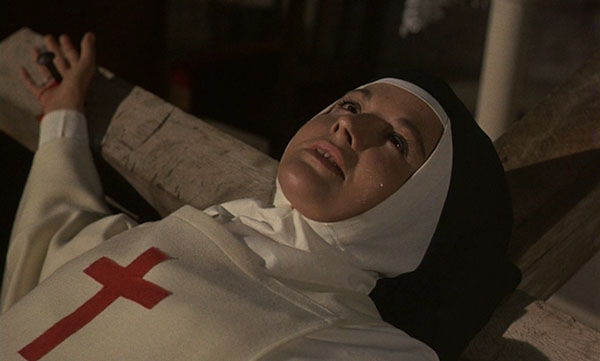
No list of this kind would be complete without including a film by Luis Buñuel, the master of subversion. Fond both of attacking hypocrisy through satire and of disrupting established norms through surrealism, Buñuel never missed an opportunity to expose what he saw as the hypocrisy of the established religion in which he received a strict Jesuit education. The Milky Way is one of his most concentrated efforts in this direction.
This is a film as difficult to categorize as its narrative structure is to organize. Its plot is non-linear, and its episodes are often bizarre and disjointed. Its principal characters are two French vagrants who undertake a pilgrimage along the famous Way of St. James. Along their path they encounter a wildly unpredictable set of characters, with whom they have surreal conversations.
Several of these scenes feature intense debates over minutiae of theological points which are clearly intended to poke fun at the bitter divisions that often occur over such trivialities. The Milky Way is not only a movie unlike any other, its an inimitable examination of many aspects of religion from one of the most iconoclastic filmmakers in history.
4. Breaking The Waves (1996) – Lars von Trier

Lars von Trier is no stranger to subversive films, but Breaking the Waves may be his most effective one because of how cohesively it retains its emotional core. Bess is the film’s main character, and her vocal conversations with God have caused her strict religious community to look down on her as mentally ill. She finds true love with an outsider, but soon after their marriage her husband suffers an accident that leaves him paralyzed.
In Bess we have a character with two endearing but potentially combustible qualities: a deep devotion to a God who speaks directly to her, and a consuming, sacrificial love for a man for whom she would give anything. She becomes obsessed with the idea that through sacrificing herself – her body, her reputation, her security – her husband can be healed, and she throws herself into this purpose without any care for her own well-being.
The sacrifice of one worthy person for the salvation of another is an original element of Christian theology, but here we’re asked to consider whether the effects of this principle are still at work today. Her journey is difficult to watch, because the viewer will be forced to wonder if, at least by the standards of her own religion, Bess has become a sinner whose soul is now in danger of eternal judgment.
And what of the efficacy of her actions to bring healing to her husband? Whether or not a modern miracle occurs, Breaking the Waves has volumes to say about the value of a pure heart’s sacrificial love, and its superiority to merely following the outward forms of a religion.
5. The Last Temptation of Christ (1988) – Martin Scorsese
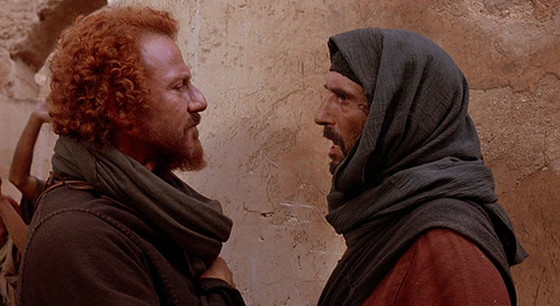
Martin Scorsese’s The Last Temptation of Christ is a complicated film to analyze, partially because its reputation is so vastly different than its actual substance. Beneath the superficial controversies of the story that “felt” blasphemous to so many people of faith is a truly reverential view of its subject. But the story’s unorthodox path toward that place of devotion proved far too treacherous for many audiences.
Scorsese was unfairly viewed as the principal villain by many, when in fact he was only adapting the novel of the same name written by Nikos Kazantzakis. Needless to say, the director’s attempt to work out his own Catholic faith on screen backfired in a big way.
Any fictional elements being added onto the existing biblical account would be faced with intense scrutiny, and the final temptation faced by the hero in this story was met with harsh opposition. Though many Christians might verbally have assented to the fact Christ faced all manner of temptations while on earth, they felt that publicly portraying such struggles crossed a major red line.
Though the hints of gnosticism within the novel by Kazantzakis are opposed to the views of mainstream Christianity, outsiders to the faith might find a protagonist to whom they can more easily relate as a human. And for those who choose to refrain from watching The Last Temptation of Christ, Peter Gabriel’s lush and transcendent soundtrack still stands as an immersive listening experience on its own.